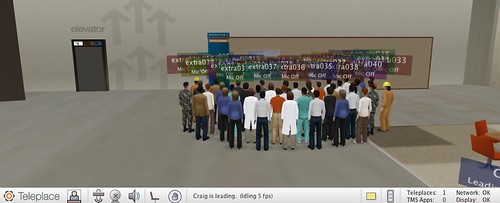Impressive Steve Jobs product presentations are built around a unifying theme. Really, the theme of our last version(*) is scalability for large institutions. This is largely architectural work hidden from most users, such as network topology or administrative support.
So far, actual users seem to have been most taken with the manifestation of this theme in the ability to control their colleagues.
*: After prototypes and two commercial versions.




